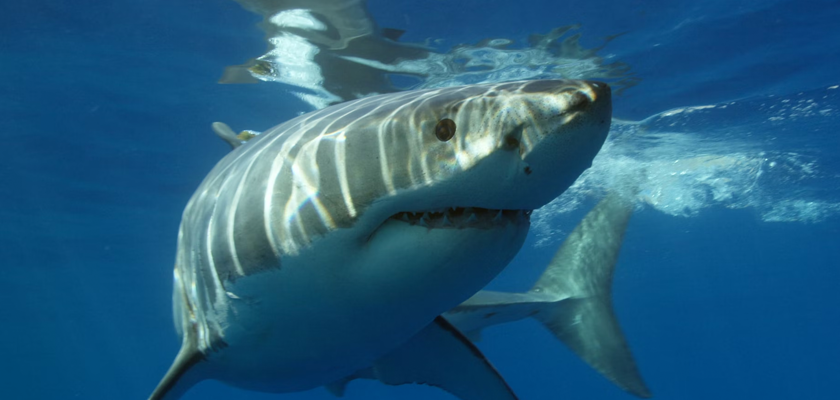This week is Shark Week, and Gulf State Park is hosting a week-long event to educate the public about sharks and rays.
Kelly Reets, the Natural Resource Planner for Gulf State Park, said Shark Week at the park started around five years ago.
“It was an idea that one of our [staff members] had to do Shark Week and correlate it with the National Geographic Shark Week,” Reets said.
However, Reets said the event no longer lines up with National Geographic, due to scheduling conflicts.
When it first came to Gulf State Park, Shark Week was only a few days. Its popularity in recent years has encouraged Gulf State Park to make it a week-long event.
This year’s Shark Week event started on Monday and will end on Friday. Festivities will take place each day from 10 a.m. to 2 p.m.
The Alabama Department of Conservation and Natural Resources will be at the park with a touch tank filled with ray species from the Gulf of Mexico and researchers from the Mississippi State University Marine Fisheries Ecology Group will be hosting a variety of educational sessions.
On Wednesday, the event sessions will focus on how sharks hunt. Participants will learn what sharks and rays eat. According to the Alabama State Park website, researchers will reveal new discoveries about the diet of tiger sharks in the Gulf.
On Thursday, participants can learn about how scientists study sharks, including how they tag and track the animals and use remotely controlled vehicles. There will be a round table with assistant extension professor at Mississippi State Dr. Marcus Drymon for youth with an interest in careers in marine biology.
The event will wrap up on Friday with sessions related to the complicated history between sharks and humans. Participants will learn about why humans fear sharks and the importance of shark conservation.
There will be live dissections of shark and ray species each day: at 11 a.m. on Wednesday and Friday and at 12 p.m. on Thursday.
Admission to Shark Week is $3 per person. Admission also permits individuals to walk and sightsee along the park’s pier.
Reets said Shark Week is designed to help people understand such a widely feared type of animal. She said that although most people believe sharks actively seek out humans in the water, sharks don’t prefer to eat humans.
“People don’t taste right,” Reets said.
According to Reets, most shark attacks are usually a matter of mistaken identity. When attacks occur, sharks sometimes mistake humans for something else or retaliate when bumped into.
Reets said sharks should be conserved, not killed and eliminated.
“There’s a lot of fear about sharks and we want to help people to understand them and have a little bit more respect for them,” Reets said. “... The more facts that you know about an animal that you’re afraid of, the easier it is to overcome that fear. So, we do that at Shark Week.”
To connect with the author of this story, or to comment, email will.blakely@1819news.com.
Don’t miss out! Subscribe to our newsletter and get our top stories every weekday morning.










